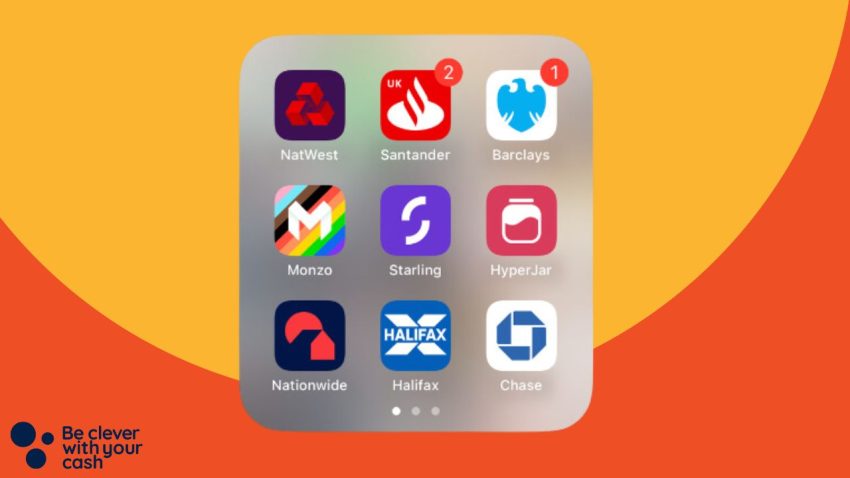You need to make sure you’re covered in case something goes wrong before or when you go away.
Whether you book your holiday through a travel agent or do it yourself, things can always wrong. Hopefully they won’t but if they do, there’s every chance you’ll lose your money.
That is unless you do the following. Though there are always complications, it’s better to have as many protections in place to help you get any lost money back or reschedule your trip with limited, if any, extra costs.
Some articles on the site contain affiliate links, which provide a small commission to help fund our work. However, they won’t affect the price you pay or our editorial independence. Read more here.

Book your insurance
It’s so important you book travel insurance, and you should do it as soon as you book your holiday, too. That’s because it’s not just about cover while you are away, you’re also partly paying for cover in case you can’t go on your trip.
You could break your leg, have a close relative pass away or see your airline collapse – all of which could prevent you from travelling. But with insurance in place you should be covered to get your money back.
Having the insurance when you’ve booked will also help if the Foreign and Commonwealth Office (FCO) later declares a destination as unsafe to visit. And this isn’t just about obvious danger zones like war zones. During the height of the pandemic many countries were off limits. You can see the latest list of places with warnings here.
A few more quick things on travel insurance.
Do read the policy documents to check exactly what you’re covered for. A few years ago I wasn’t covered for coming back early from the USA when I hurt my back as this was categorised as curtailment – and only unused costs were covered, not new costs. So though my original flight home was refunded, the more expensive earlier flight I did take, wasn’t.
Check for cover for things like natural disasters (remember the ash from the Icelandic volcano) and pandemics too – these could be excluded. It’s worth paying a little more for this cover.
In fact, lots of people might think they are covered by a policy that comes with their bank account. You might be, but check those extra terms and conditions to be sure.
In addition, you must declare any pre-existing medical conditions. If you get ill and the insurance company discovers you didn’t declare you’ve had treatment – even if it’s not for the thing you’re ill with on holiday – they will likely reject your claim. It can be more expensive to find a policy if you have been ill before, but it really is worth getting the right one.
And if you’re going to take two or more trips in a year, annual insurance could work out more cost-effective. The problem you get here is do you need to get just European cover, or are you likely to go worldwide. If there’s a strong chance of the latter then make sure you get cover for this. And don’t forget things like winter sports too if you’re going to be getting involved in those kinds of activities.
Get the best of our money saving content every week, straight to your inbox
Plus, new Quidco customers get a high paying £18 welcome offer

Look for extra legal protections such as ATOL and ABTA
Though I tend to book everything myself, if you’re looking at a simple holiday, packages can be the easiest way to book – and they can come with added protection.
The biggest of these is ATOL. If you’ve bought your hotel and your flight – whether as a package from a travel agent or since the 1st of July 2018 from the same website at the same time (e.g. Expedia) – then you will have ATOL protection.
With ATOL, the big benefit is if something goes bust – whether with the hotel, flight or tour operator – then you will either get your money back before you go, or you will be flown home if already abroad (though as we saw with the Thomas Cook collapse in 2019, that’s not always straightforward).
So it’s important to look for ATOL certification when booking, and you can check it’s the real thing via the Civil Aviation Authority website.
Package holidays also give you consumer rights if the holiday isn’t what you expected – say there was constant building work you weren’t told about. You can claim compensation.
Now if your holiday doesn’t involve a flight, say it’s a cruise or a coach tour, look for ABTA membership as you’ll get support if something goes wrong. Again you can check the ABTA membership is the real thing, this time on the ABTA website.
Of course you don’t get ATOL if you book the flights and hotels separately from different companies, so it’s worth making sure your travel insurance covers things like airline failure and consequential losses.
However, although it’s not defined as a package, if you bought your flights and hotel from the same website or travel agent within 24 hours but in separate transactions you can also claim money back if one of the providers goes under.
 Featured switching deal
Featured switching deal
 Customer rating
3.8/5
Customer rating
3.8/5
- Switch bonus£200
- Offer endsUnknown
- FSCS Protected? Yes
- Bonus requirements Switch using the Current Account Switch Service and close your old account within 60 days of starting the switch
- Deposit requirements Deposit £1,500 in the first 60 days from opening the account
- Direct debits transferred over Set up two Direct Debits before or after the switch from a selected list of household bills
- Existing customers? Can't have held any Santander current account on 1 January 2025
- Restrictions Can't have received a switching bonus from Santander already, offer limited to once per person
- Eligible accounts Open a new or hold an existing Everyday, Edge, Edge Up or Edge Explorer current account
Pay with a credit card
Whether it’s a package or a DIY holiday, if any part of it costs more than £100, pay for it with a credit card. Do this and if there’s a problem, such as the hotel going bust, then the credit card company is equally liable for any losses you make. This is thanks to something called Section 75 of the Consumer Credit Act.
But there are two things to keep in mind. First, the £100 minimum relates to each individual item purchased. So let’s say you are buying two single flights. If one is £120 and one is £70, it could be that only the first flight gets this cover – even if you brought them from the same operator at the same time. However, if it’s a return flight at £190 then both are covered.
Secondly, this is only if you have a direct relationship with the provider. So buy EasyJet flights from EasyJet then yes, you get this protection. But buy them from a third party such as Lastminute.com then you won’t.
And of course, with credit cards, make sure you can clear that debt each month before interest charges are added.
Get a GHIC
The Global Health Insurance Card is essential if you are going to Europe this summer, and replaces the previous EHIC that ended under the Brexit aggreement.
With a GHIC you can access the same health care as locals at the same price they pay, which isn’t necessarily free. But without one it could cost you a fortune – and most travel insurance policies require you to have one too or they could reject any claim you make.
These are free – so don’t fall for dodgy websites charging you to get one. Instead go via the NHS website.






I learned the hard way about buying the right travel insurance as soon as I bought my diy holiday. When Easyjet cancelled my flights too early for statutory compensation, meaning I had to change airport, it made my overnight airport hotel unusable: the hotel was non refundable as it was a cheap deal which can’t be refunded or amended; under £100 for S75 purposes and not covered by my too basic cover, which would hardly be worth claiming from for relatively low amounts due to the excess. Ah well live and learn!